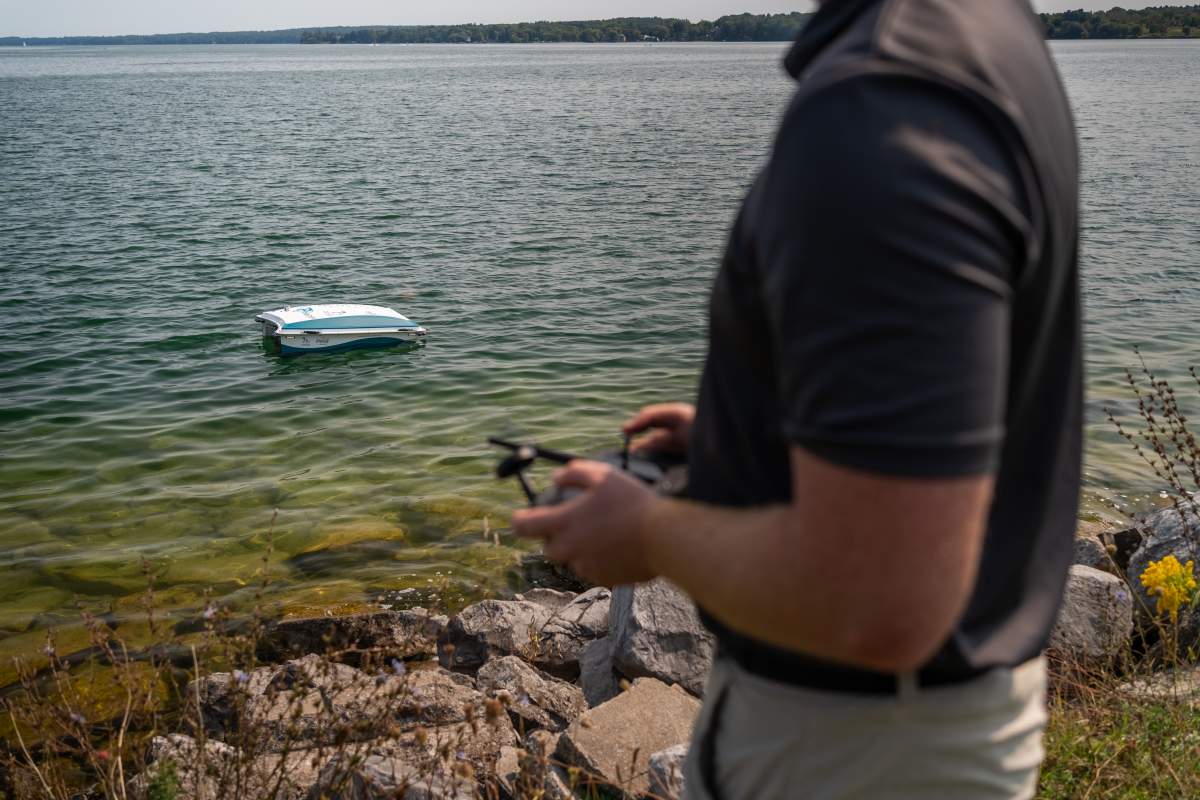A new drone technology is set to make big waves in Pollution Probe’s mission to clean the Great Lakes of plastic waste and it’s starting in Lake Simcoe.

The PixieDrone debuted on Lake Simcoe, which is connected to Lake Huron’s Georgian Bay via the Severn River, in Barrie last week and will be used at other Great Lakes Plastic Cleanup locations across the region starting in Spring next year.
Christopher Hilkene, CEO of Pollution Probe, says the new technology will make a big difference in how the organization fights plastic pollution because it can be moved around rather than being a stationary object that pulls in stuff around it.
“With this technology, just the mobility of it, that we can take it to different places, that we can cover more territory, we can get a whole lot more plastic. It just makes this initiative so much more robust,” Hilkene said.
Hilkene said the new technology will allow them to remove significantly more plastic from the environment than they were before.

Get breaking National news
“What do we do with all that stuff that we collect is we actually work with the community to characterize it, to analyze all that stuff so that we can identify what solutions are required,” he said.
The remote-controlled drone can collect up to 160 litres of debris in one outing, roughly the size of a bathtub.
The initiative is part of the not-for-profit’s Great Lakes Plastic Cleanup, a massive effort to remove plastic and other debris from the world’s largest freshwater system.
The initiative is run in partnership with the Council of the Great Lakes region and operates in more than 150 locations in Canada and the United States.
“There are places in the Great Lakes where the concentrations are higher than they are in the ocean gyres, or at least as high as they are there. So, it is a real problem, and it affects fish and wildlife and everything else that is in the lakes,” the CEO said.
The drone, which Coca-Cola Canada donated, is made by a France-based company called The Searial Cleaners out of France.
Hilkene said that while they only have one drone right now, they hope to add more to their initiative in the future.
He said addressing plastic waste is important because, over time, plastic in the water starts to break into smaller pieces, becoming microplastics, impacting fish and other wildlife that can’t break it down.
“Everything in the environment is connected. If it’s impacting the things in the water, it’s impacting everything else as well,” he said.









Comments
Want to discuss? Please read our Commenting Policy first.